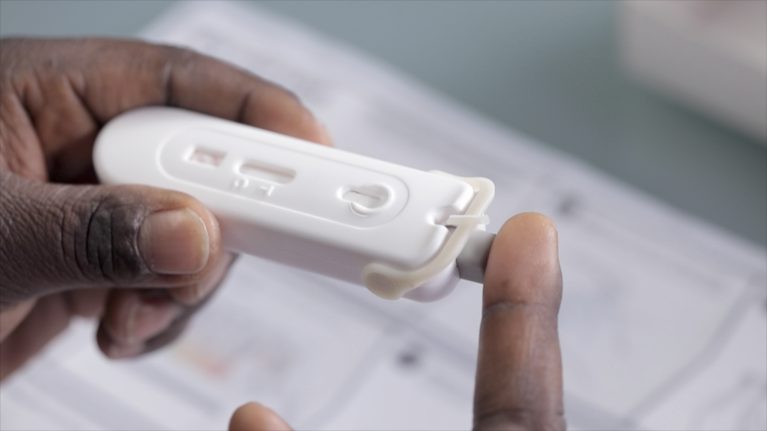
HIV transmissions in NSW drop 17 per cent as HIV self-test becomes available

A HIV self-test has become available in New South Wales as the latest NSW Health data shows a 17 per cent drop in HIV transmissions in 2018.
In 2018, there were 278 new cases of HIV reported in NSW compared to the five-year average of 335, however in the fourth quarter of 2018 new HIV notifications rose compared to recent quarters.
HIV transmission rates continue to fall among Australian-born men who have sex with men (MSM), dropping 33 per cent compared to the five-year average.
But rates among overseas-born MSM, which rose 10 per cent in the first half of 2018, ultimately fell just 3 per cent by the end of the year.
While the number of new HIV notifications with evidence that transmission occurred in the year prior to diagnosis fell 25 per cent last year, among overseas-born MSM 39 per cent were cases of late or advanced stage disease.
NSW Health’s Q4 and annual 2018 report suggests this uptick in detection of long-standing infections may reflect an increase in testing rates among overseas-born MSM.
But the number of HIV tests administered to those self-identifying as MSM dropped by around 10 per cent in the last quarter of the year versus the same period in 2017.
“What’s clear from the 2018 data is that earlier diagnosis through increased testing, earlier uptake of treatment and the scale up of PrEP are all making an impact on our collective efforts to reduce HIV notifications in NSW,” said ACON CEO Nicolas Parkhill.
“More data from upcoming quarters are needed to determine whether or not this increase continues, or whether the HIV rates revert to the levels seen earlier in 2018.
“We’re extremely hopeful that the HIV transmission data will continue to trend downward,” Parkhill said.
“Throughout 2018, ACON has been working hard to design, build and deliver responses to better engage overseas-born gay men and MSM, including the launch of a[TEST] Chinese Clinic.
“We will continue to work with a range of partners to ensure gay men and MSM born overseas can access appropriate HIV prevention, testing and treatment messages and services.”
A key trend in the latest data is the continuing improvement in treatment uptake, with 83 per cent of people diagnosed with HIV in January to June 2018 commencing treatment within six weeks of diagnosis.
In the same timeframe, there was an 11 per cent increase in people beginning antiretroviral treatment (ART) within two weeks of diagnosis, and the median number of days to ART uptake has declined to 21 days since 2013.
The latest data also suggests high rates of undetectable viral load (UVL) among HIV-positive people on treatment; 97 per cent of those aged 40 and older were undetectable in their most recent test between September and December 2018.
93 per cent of those aged 30 to 39 were undetectable, while 89 per cent of those aged 30 or younger were undetectable. Rates of UVL in these cohorts have increased from 66 per cent and 62 per cent respectively since 2013.
Centre for Social Research in Health data released last year showed a record number of gay and bisexual men living with HIV were achieving UVL.
Both ACON and the Australian Federation of AIDS Organisations (AFAO) have welcomed the news that a HIV self-test is available in New South Wales starting Thursday April 4.
“HIV testing is key to ending HIV in NSW because if people don’t know their HIV status, they can’t improve their health or take action to prevent potential transmission,” Parkhill said.
“Self-testing will help overcome key barriers some people experience when testing, such as fear of a positive result in the presence of a healthcare provider, avoiding screening due to privacy concerns or lack of access to sexual health services.”
“We know a lot of people delay testing for HIV due to fear and embarrassment. Self-testing helps overcome these barriers and has been shown to increase testing frequency among gay and bisexual men,” added AFAO CEO Daryl O’Donnell.
“Self-testing is very important for those who need to test regularly, and for those who would otherwise not test at all.”
AFAO has released a fact sheet around the HIV self-test, which was approved for sale in November last year with the caveat that it will only be available for purchase online and not at chemists.
The fact sheet can be accessed by clicking here.
You can also read NSW Health’s full Quarter 4 & Annual 2018 HIV data report by clicking here.









